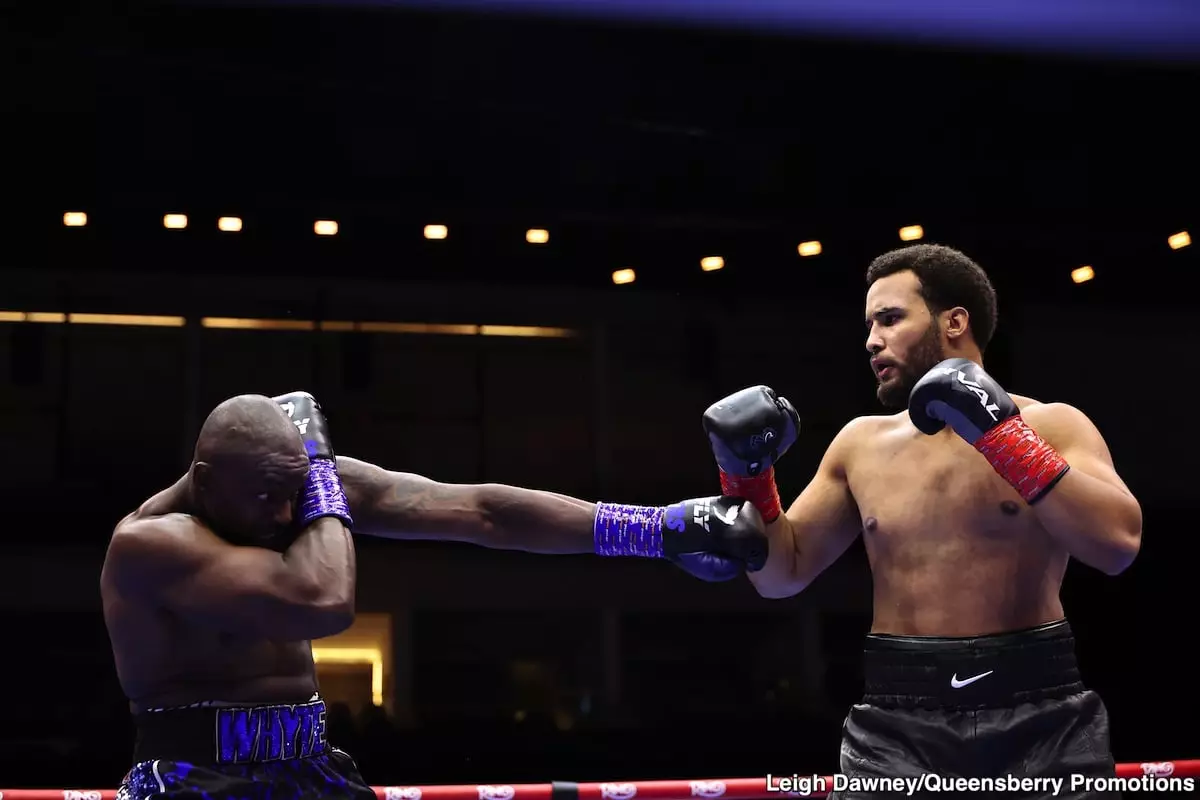In the often unforgiving world of heavyweight boxing, longevity is a rare commodity, and Luis Ortiz exemplifies this paradoxical feat. The Cuban southpaw, currently in the twilight of his career at 46, recently made a modest return to the ring with a first-round stoppage, reminding fans and critics alike that experience can sometimes trump youth. While the opponent may have lacked notoriety, Ortiz’s demonstration of power and readiness sends an unmistakable message: he’s still a force to be reckoned with. Yet, beneath this superficial victory lies a deeper narrative—Ortiz’s age and the desire to carve out a meaningful final chapter in his storied career.
His triumphant return is more than just a resume boost; it’s an act of defiance. Ortiz’s unwavering confidence, expressed in interviews and social media, highlights a veteran’s unyielding belief that he still belongs at the top of the heavyweight hierarchy. He claims to be “great,” both mentally and physically, and makes clear he’s willing to face any challenger. This boldness invites scrutiny, as many in boxing question whether a fighter nearing his mid-40s can sustain the necessary intensity and durability at the highest levels. But Ortiz’s resilience challenges those doubts, revealing a man who refuses to fade quietly into the background.
Challenging the Future: Ortiz’s Willingness to Enter the Young Lion’s Den
Ortiz’s vocal openness to facing rising stars like Oleksandr Usyk and Anthony Joshua is particularly provocative. These names are more than just lightning rods—they represent the next phase of heavyweight evolution. To suggest himself as a potential opponent amidst this elite echelon is a calculated gamble, perhaps more about maintaining relevance than realistically capturing a title shot. Yet, in a sport where mental resilience often outweighs raw speed, Ortiz’s confidence can’t be dismissed outright.
Most intriguing is his recent mention of Moses Itauma, the 20-year-old sensation rapidly ascending the rankings. Ortiz, who might be decades older than Itauma, proposes an intriguing pairing: a seasoned veteran with gritty experience against a young, hungry talent. This offer, almost a symbolic passing of the torch, underscores Ortiz’s hunger to remain active and test himself against the new generation. Despite the age gap, a fight with Itauma presents compelling narrative value, offering fans insights into how skills, power, and durability stack up across generations.
While critics may scoff at the idea of an older fighter challenging a rising star, the potential clash could serve a dual purpose: Itauma gains a significant name on his resume, and Ortiz proves his continued relevance. It’s a dynamic that could resonate with fans hungry for fights that deepen the sport’s storytelling depth, rather than mere exhibition matches or tune-ups.
The Reality Check: Can Ortiz Survive Against the Top Pros?
Of course, questions about Ortiz’s capacity linger. His age raises concerns about stamina, reflexes, and the ability to withstand the relentless pressure of modern heavyweights. If he were to face Itauma, would Ortiz’s experience be enough to neutralize explosiveness? Or would fatigue and the younger fighter’s speed overwhelm him? These are legitimate questions, but they do not completely negate the potential for a compelling showdown.
From a strategic perspective, the fight would not necessarily have to favor Ortiz in every aspect; rather, it could be about who adapts better as rounds progress. Ortiz’s power, if he manages to land a clean shot, remains a threat—potentially enough to turn the fight’s tide. His durability in past contests demonstrates that he can absorb punches; however, at 46, that trait becomes increasingly uncertain. The idea of Ortiz fighting someone like Itauma, who is still eager to learn and develop, could be a calculated risk worth taking, both for the fighter and the fans craving unpredictability.
Meanwhile, matches against less formidable names like Charles Martin lack the same intrigue. Ortiz’s supposed ambition to test himself against a prospect like Itauma seems not only more respectful but also more aligned with boxing’s storytelling tradition—challenging the future rather than settling for easy paydays. Such a move could rejuvenate Ortiz’s career, transform him into a mentor-figure with a killer’s instinct, and provide fans with a truly novel spectacle.
Final Thoughts: Is Ortiz a Window into the Sport’s Kyrogenic Spirit?
Luis Ortiz’s audacious claims and willingness to step into the ring against the sport’s young stars exemplify a vital aspect of boxing—the desire to defy age and expectations. His career, marked by resilience and persistence, embodies the relentless spirit that keeps the sport alive and exciting. While doubts about his speed, reflexes, and stamina persist, his strategic choice to target emerging fighters like Itauma reveals a nuanced understanding of boxing’s landscape: the importance of legacy, relevance, and storytelling.
Ortiz may be an old lion, but his roar still commands attention. In a division increasingly dominated by youth and speed, his call for meaningful challenges serves as a reminder that experience and fighting spirit can sometimes level the playing field. Whether he truly stands a chance against the sport’s best remains to be seen, but his presence injects a much-needed narrative of resilience and defiance—traits that are essential for boxing’s continued evolution.

